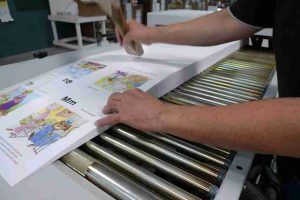We think that the path to making books that are actually good for the environment is one that everyone must take, starting with the creative visionaries and passionate storytellers themselves. For too long, the effect of publication on the environment has been an afterthought. However, we see a future where authors and publishers work together to make books that are both full of information and good for the environment. This mentality of working together is important because it changes the book from a product into a statement of shared environmental responsibility.
Working Together to Make a Greener Literary Footprint

Giving Writers Power: Writing with a Green Conscience
Authors can help people learn more about the environment by publishing books, but they can also do it by writing stories that deal with topics. The book’s goal goes beyond amusement since the message and the medium are so closely related. It becomes a tool for change. Authors can also use techniques that lower the total need for physical resources, such as encouraging people to read early manuscripts and proofs online and pushing publishers to look into print-on-demand (POD) models for backlist titles to cut down on waste.
Publishers as Stewards: Encouraging Long-Term Practices
Publishers are very important to the production process, and their dedication is necessary for the business to adopt more environmentally friendly practices. We at “Publishers & Authors” want publishers to make eco-certified production their default. Publishers use their buying power to push for sustainable materials and procedures by making these choices standard practice. This affects the whole supply chain.
A Spirit of Working Together for a Shared Vision
Authors and publishers should work together to have the best possible effect on the environment. We want publishers to be honest about how they treat the earth. They should use eco-labels or specific parts of their websites to let writers and readers know what they are doing to help the environment. This helps everyone feel like they have a say in how the book influences the surroundings. We also think that writers who care about the environment should work together closely to choose the types of paper, ink, and printing technologies they use. This relationship makes publishing a collective effort to protect the environment, which lets the industry develop books that are better for the environment and urge people to work together to make the world a better place.
Conclusion
For ecological book manufacturing to have a future, publishers and authors need to work together very well. We can all work together to make the literary world as responsible as it is resonant by giving authors the power to think about how their work affects the environment and by making publishers promise to put sustainable production practices first and talk about them. This alliance is writing a new, greener chapter for the business. It makes sure that every narrative told leaves a good legacy for the world and for people.
Lead the change: adopt eco-conscious printing today
https://www.ecolibris.net



